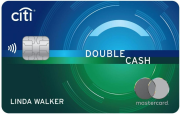The content on this page is accurate as of the posting date; however, some of the offers mentioned may have expired.

Forget about just credit card fees, with the help of the Durbin-Dodd amendment, consumers should start getting used to debit card fees. Banks have lost billions of dollars nationwide with the passage of the CARD Act, and are looking at consumers to pay to cover the costs.
Beginning this fall, Wells Fargo will begin charging a pilot $3 monthly fee for personal and business debit cards. Starting Oct. 14, Wells Fargo customers in Georgia, Washington, New Mexico, Nevada and Oregon will be charged $3 a month regardless if they use their card or not. The charge is steep, as many banks don’t even charge $3 for using an ATM outside of your bank.
The $3 is a user fee that is not associated with any ATM withdrawal or inactivity. Consumers can avoid the fee by not using their card, and the fees will only affect consumers who have opened up accounts in those five states.
The fee comes on the hind legs of the Durbin-Dodd amendment, passed on June 29, which states that the Federal Reserve can no longer charge credit card interchange fees of 44 cents, but must drop it down 21 cents, starting Oct. 1. The drop in fees has costs banks billions of dollars – and has made them think of more creative ways to get money out of the consumer. According to the Nilson Report, the change in interchange fees will cost banks approximately $20 billion.
If the pilot is a success, Wells Fargo may soon roll out the new charge to all Wells Fargo customers in order to make up for lost revenue., according to Wells Fargo spokesman Josh Dunn.
While Wells Fargo may have the spotlight, they certainly aren’t the first or the last bank to implement this service charge. "The result of the change in the debit-card interchange rule is that consumers get stuck with the bill," said Greg McBride, senior financial analyst at research firm Bankrate.com.
In northern Wisconsin, JPMorgan Chase has been rolling out a similar monthly $3 charge. The charge has been going on since February.
The pilot programs will monitor current customer retention and satisfaction. The consumers who frequently monitor their account and pay close attention to fees will "vote with their feet" and subsequently close their accounts. Some will not notice the fee, and others will pay the monthly fee in order to avoid the inconvenience of opening new accounts and transferring bill-payment information, according to McBride.
In addition to other changes being made, Wells Fargo and other banks have also started removing debit customer rewards programs, in an attempt to make debit less appealing. Wells Fargo ended its customer debit rewards program in March.
Across the board, banks have been trying to make up lost revenue from interchange fees by introducing higher overdraft fees, credit card charges, and debit fees, while they have simultaneously removed free checking programs, rewards programs and programs that benefit the consumers.





